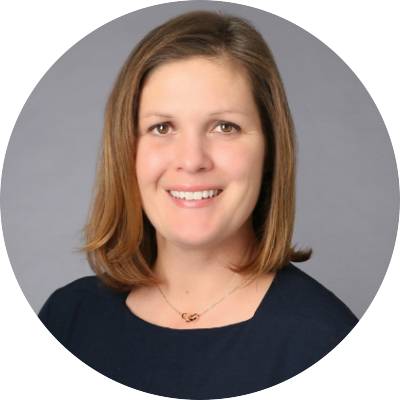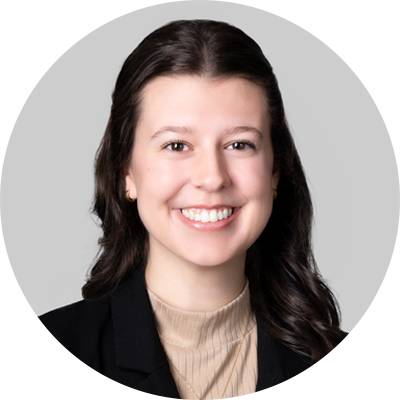Mobility and Immigration Solutions to Combatting US Physician Shortage Challenges
January 24, 2024
The United States is experiencing a dire physician shortage—one that is only expected to continue to increase in the coming years.
Physician shortages around the country are of significant concern in areas that the U.S. Department of Health and Human Services has designated as Health Professional Shortage Areas (HPSAs) and Medically Underserved Areas/Populations (MUA/Ps).
Underserved communities, whether rural or urban, face extensive barriers in obtaining access to proper medical care. With projections of a physician shortage of 124,000 doctors by 2034, the need for physicians is more critical than ever.
One significant barrier to combatting this shortage is stagnant immigration laws, including the J-1 visa’s two-year home residency requirement, and the limitations on waiver options for international medical graduates who receive medical training in the U.S.
The J-1 Visa: Limitations on International Medical Graduates
Physicians who come to the U.S. on a J-1 visa to undergo medical training become subject to what is known as the two-year home residency requirement. To fulfill this, a physician must either return to their home country or country of last residence for two years or obtain a waiver.
This requirement plays a significant role in the overarching physician shortage, as U.S. immigration laws have not significantly changed for more than 20 years. When an international medical graduate is unable to obtain a waiver, they will be required to leave the country for two years—instead of putting their skills to use, working in shortage areas within the U.S. and actively providing care to some of America’s neediest patients.
How Regional Commissions are Combatting the Physician Shortage
This two-year home residency requirement for physicians has limited waiver options. The Conrad 30 program allows each state up to 30 waivers each year for physicians who will be working in federally designated HPSAs and MUA/Ps or who will treat patients who reside in designated shortage areas. Given the numerical limit in each state, and with more than half of the states receiving more than 30 waiver applications each year, not every physician who seeks to waive their home residency requirement will receive a waiver through the state program.
Another option is the HHS Exchange Visitor Program through the U.S. Department of Health and Human Services (HHS). This waiver is only available to primary care physicians who will be practicing in a designated HPSA with a score of 7 or above. Alternatively, physicians working at Veterans Affairs (VA) facilities may qualify for a special VA waiver option.
In response to the numerical limitations of the Conrad program and the narrow availability of the HHS waiver and VA waiver, regional commissions have begun implementing J-1 visa waiver programs for physicians practicing in the regional commission’s which expands availability of waivers.
Regional commissions are committed to improving economies and access to healthcare in their footprint, so providing J-1 waivers are a natural and impactful avenue to allowing more physicians to waive their two-year home country requirement.
Active Regional commissions include the Delta Regional Authority (DRA), the Appalachian Regional Commission (ARC), and the Southeast Crescent Regional Commission (SCRC). Recently, at the end of 2023, the Northern Border Regional Commission (NBRC) also announced a J-1 waiver program.
New Commissions: Paving the Way Forward
The Northern Border Regional Commission (NBRC), which covers areas of New Hampshire, Maine, Vermont and New York, newly announced on December 4, 2023, that it would be launching a J-1 waiver program. It joins as the fourth regional commission to implement a J-1 waiver program.
This is a welcome addition for international medical graduates to provide critically-needed medical care in states like New York which frequently face a demand for waivers significantly higher than the 30 waivers allowed by the Conrad 30 program, given the need for critically-needed medical care in underserved communities.
In response to the increasing challenges rural communities face in obtaining access to medical care, the NBRC has begun phase one of the J-1 waiver program.
Currently, J-1 waivers through NBRC are available to primary or mental health physicians who will be working within a designated HPSA or MUA of any score within the covered region. Phase two of the program roll-out plans to expand availability to specialty care physicians. Physicians must agree to work for at least three years for 40 hours per week in a designated shortage area to qualify for a waiver. There is currently no filing fee to apply for a waiver recommendation through the NBRC.
The NBRC covers the following regions:
- Maine: Androscoggin, Aroostook, Franklin, Hancock, Kennebec, Knox, Oxford, Penobscot, Piscataquis, Somerset, Waldo and Washington counties.
- New Hampshire: Belknap, Carroll, Cheshire, Coos, Grafton and Sullivan counties.
- New York: Cayuga, Clinton, Essex, Franklin, Fulton, Genesee, Greene, Hamilton, Herkimer, Jefferson, Lewis, Livingston, Madison, Montgomery, Niagara, Oneida, Orleans, Oswego, Rensselaer, Saratoga, Schenectady, Seneca, St. Lawrence, Sullivan, Washington, Warren, Wayne and Yates counties.
- Vermont: Addison, Bennington, Caledonia, Chittenden, Essex, Franklin, Grand Isle, Lamoille, Orange, Orleans, Rutland, Washington, Windham and Windsor counties.
Physicians who have accepted employment at facilities located within these counties are within the region covered by the NBRC and may qualify for a waiver through the regional commission.
A long time coming, this new regional commission is directly addressing the grave physician shortages plaguing the country, and combatting challenges in obtaining access to medical care, by providing another option for physicians who plan to practice in the covered geographic regions.
Need to Know More?
For further information or if you have questions about the NBRC or other J-1 waiver programs, please reach out to Partner Sarah K. Peterson at [email protected] or Associate Nicole Bennett at [email protected].
This blog was published on January 24, 2024, and due to the circumstances, there are frequent changes. To keep up to date with all the latest updates on global immigration, please subscribe to our alerts and follow us on LinkedIn, X, Facebook and Instagram.
















